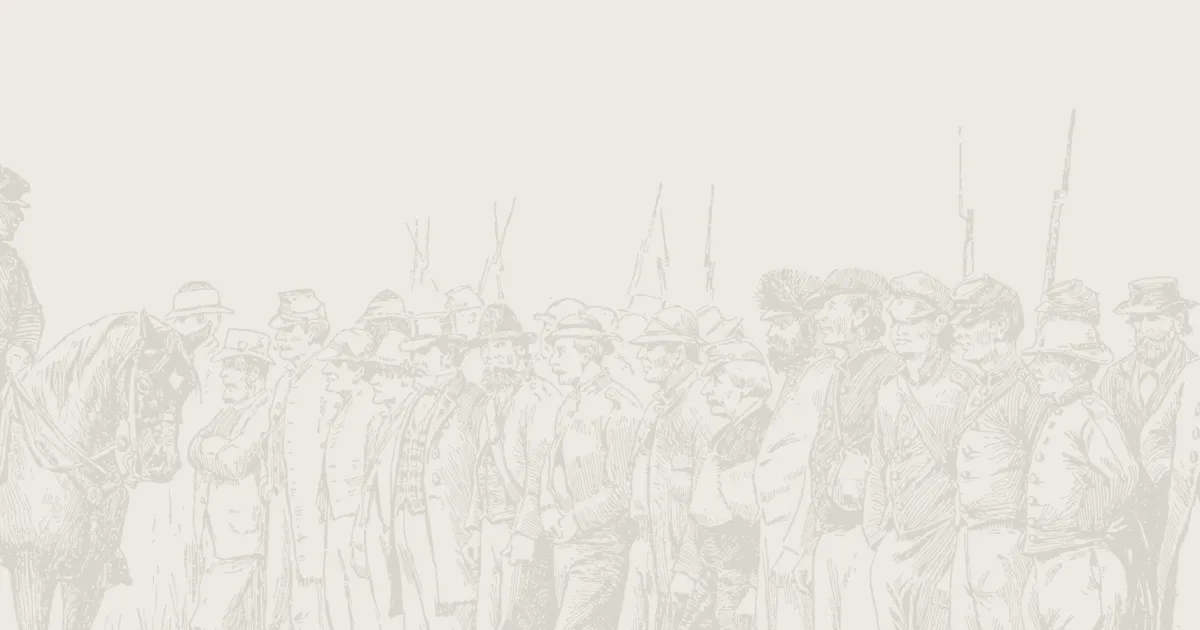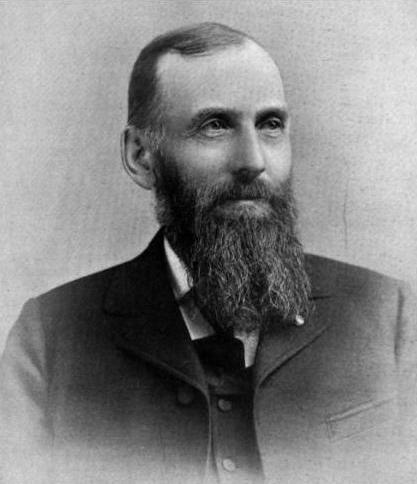5fish
Well-Known Member
- Joined
- Jul 28, 2019
- Messages
- 14,788
- Reaction score
- 5,466
Here is a battle known by some but forgotten by most. It is the battle that stalls McClellan's attempt to capture Lee's army after Antietam. It s an interesting battle that starts off badly for the confederate but A,P, Hill comes to the rescue, again...

After an exhausting day, General Robert E. Lee settled into a much-needed sleep under an apple tree. It was not long before he awakened to a real-life nightmare. Brigadier General William Nelson Pendleton, who served as the Army of Northern Virginia’s chief of artillery, stood over him in a near panic with terrible news. The army’s entire rear guard, with 44 pieces of artillery, had just been overwhelmed and gobbled up by Major General George B. McClellan’s Army of the Potomac at the Potomac River crossing of Boteler’s Ford. ‘All?’ asked Lee. The shaken Pendleton replied, ‘Yes, General, I fear all.’
Among the other bluecoat regiments getting their baptism by fire that day was the 20th Maine Infantry. Ten months later, they would win immortal fame for their crucial stand on Little Round Top at the Battle of Gettysburg. Their second in command, Lt. Col. Joshua Lawrence Chamberlain, rode a borrowed horse partway across the ford to direct reinforcements who were being sent to cover the withdrawal. The ford there was passable, but deep enough that the infantrymen were in danger of being swept off their feet and lost in the current. After the infantry had waded past Chamberlain, a bullet struck his mount. The wounded horse dumped Chamberlain into the river, but the officer dragged himself dripping wet but unhurt to the bank. Chamberlain’s regiment performed well during its first time under fire. Despite some initial fear and confusion, only three of his men were wounded; one had accidentally shot himself with his musket.
Jackson quickly learned of the potentially dire situation. The weakened Army of Northern Virginia was scattered for miles, a painfully large portion of its artillery was reported as captured and Maj. Gen. J.E.B. Stuart’s cavalry was miles upriver, making a demonstration against Williamsport, Md. Stonewall wasted no time and about 6:30 a.m. ordered the nearest Confederate infantry unit, Maj. Gen. A.P. Hill’s Light Division, to Boteler’s Ford.
The Confederates, jubilant with victory, believed the Union cost was even higher. Hill thought that he had seen ‘the most terrible slaughter that this war has yet witnessed. The broad surface of the Potomac was blue with the floating bodies of our foe.’
The Battle of Shepherdstown was the last bloodshed of the 1862 Maryland campaign. The minor disaster convinced McClellan that caution should be the byword when pursuing Lee’s army. His Union forces reoccupied Harpers Ferry but went no farther, and the Federal general seemed content with reports from his signal posts that the Army of Northern Virginia was remaining static.
Lincoln grew even more impatient with McClellan after Lee escaped with no more than the half-hearted attack repulsed at Boteler’s Ford. If Pendleton blundered at Boteler’s Ford on September 19, and Lee erred in placing him with only two weakened brigades to guard the ford, the chain of Federal mistakes the next day tipped the balance in favor of the South. Confederate newspapers seized the chance to bring a bit of good news to offset the bloody battle on September 17, and disappointment over the failure of the invasion of Maryland. Best of all, Lee’s weary soldiers had some time to rest in their camps along Opequon Creek. As Captain John Esten Cooke of Stuart’s staff put it, for a time ‘the enemy had learned their lesson, and were quiet.’

The morning after Lee’s crossing, September 19, McClellan sent cavalry under Alfred Pleasonton to reconnoiter. Directed by McClellan not to cross the Potomac “unless you see a splendid opportunity to inflict great damage upon the enemy without loss to yourself,” Pleasonton remained on the Maryland shore; the Confederate position guarding the ford appeared to be strong.
By late morning, Union general Fitz-John Porter’s Fifth Corps arrived to support Pleasonton with orders from McClellan to pursue the Confederates. Throughout the day, Union artillerymen dueled with their Confederate counterparts on the opposite shore, and at nightfall five hundred soldiers from Porter’s command crossed the Potomac and attacked Pendleton’s position. During the fight, Porter’s men captured five cannon and sent Pendleton into a panic.
While the Battle of Shepherdstown paralyzed McClellan and contributed further to Lincoln’s disgust over McClellan’s lack of aggressiveness, it saved the Army of Northern Virginia. With minimal sacrifice, Lee was able cross his army safely into the northern Shenandoah Valley, where it could rest to fight another day.

After an exhausting day, General Robert E. Lee settled into a much-needed sleep under an apple tree. It was not long before he awakened to a real-life nightmare. Brigadier General William Nelson Pendleton, who served as the Army of Northern Virginia’s chief of artillery, stood over him in a near panic with terrible news. The army’s entire rear guard, with 44 pieces of artillery, had just been overwhelmed and gobbled up by Major General George B. McClellan’s Army of the Potomac at the Potomac River crossing of Boteler’s Ford. ‘All?’ asked Lee. The shaken Pendleton replied, ‘Yes, General, I fear all.’
Among the other bluecoat regiments getting their baptism by fire that day was the 20th Maine Infantry. Ten months later, they would win immortal fame for their crucial stand on Little Round Top at the Battle of Gettysburg. Their second in command, Lt. Col. Joshua Lawrence Chamberlain, rode a borrowed horse partway across the ford to direct reinforcements who were being sent to cover the withdrawal. The ford there was passable, but deep enough that the infantrymen were in danger of being swept off their feet and lost in the current. After the infantry had waded past Chamberlain, a bullet struck his mount. The wounded horse dumped Chamberlain into the river, but the officer dragged himself dripping wet but unhurt to the bank. Chamberlain’s regiment performed well during its first time under fire. Despite some initial fear and confusion, only three of his men were wounded; one had accidentally shot himself with his musket.
Jackson quickly learned of the potentially dire situation. The weakened Army of Northern Virginia was scattered for miles, a painfully large portion of its artillery was reported as captured and Maj. Gen. J.E.B. Stuart’s cavalry was miles upriver, making a demonstration against Williamsport, Md. Stonewall wasted no time and about 6:30 a.m. ordered the nearest Confederate infantry unit, Maj. Gen. A.P. Hill’s Light Division, to Boteler’s Ford.
The Confederates, jubilant with victory, believed the Union cost was even higher. Hill thought that he had seen ‘the most terrible slaughter that this war has yet witnessed. The broad surface of the Potomac was blue with the floating bodies of our foe.’
The Battle of Shepherdstown was the last bloodshed of the 1862 Maryland campaign. The minor disaster convinced McClellan that caution should be the byword when pursuing Lee’s army. His Union forces reoccupied Harpers Ferry but went no farther, and the Federal general seemed content with reports from his signal posts that the Army of Northern Virginia was remaining static.
Lincoln grew even more impatient with McClellan after Lee escaped with no more than the half-hearted attack repulsed at Boteler’s Ford. If Pendleton blundered at Boteler’s Ford on September 19, and Lee erred in placing him with only two weakened brigades to guard the ford, the chain of Federal mistakes the next day tipped the balance in favor of the South. Confederate newspapers seized the chance to bring a bit of good news to offset the bloody battle on September 17, and disappointment over the failure of the invasion of Maryland. Best of all, Lee’s weary soldiers had some time to rest in their camps along Opequon Creek. As Captain John Esten Cooke of Stuart’s staff put it, for a time ‘the enemy had learned their lesson, and were quiet.’

Shepherdstown, Battle of - Encyclopedia Virginia
Background William Nelson Pendleton Following the Battle of Antietam, which marked the bloodiest day of the war, Lee decided to pull his wearied Army of Northern Virginia back across the Potomac River and into Virginia. On the night of September 18, Lee’s forces crossed the river at Boteler’s...
encyclopediavirginia.org
The morning after Lee’s crossing, September 19, McClellan sent cavalry under Alfred Pleasonton to reconnoiter. Directed by McClellan not to cross the Potomac “unless you see a splendid opportunity to inflict great damage upon the enemy without loss to yourself,” Pleasonton remained on the Maryland shore; the Confederate position guarding the ford appeared to be strong.
By late morning, Union general Fitz-John Porter’s Fifth Corps arrived to support Pleasonton with orders from McClellan to pursue the Confederates. Throughout the day, Union artillerymen dueled with their Confederate counterparts on the opposite shore, and at nightfall five hundred soldiers from Porter’s command crossed the Potomac and attacked Pendleton’s position. During the fight, Porter’s men captured five cannon and sent Pendleton into a panic.
While the Battle of Shepherdstown paralyzed McClellan and contributed further to Lincoln’s disgust over McClellan’s lack of aggressiveness, it saved the Army of Northern Virginia. With minimal sacrifice, Lee was able cross his army safely into the northern Shenandoah Valley, where it could rest to fight another day.


